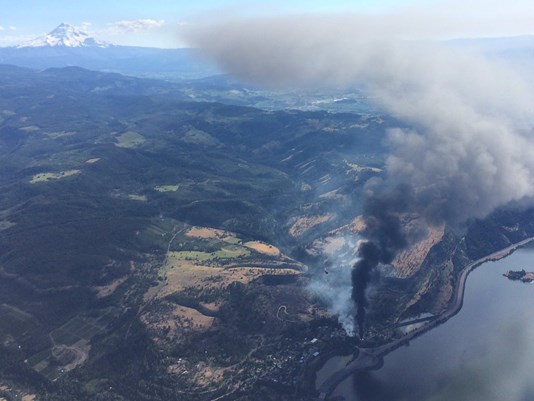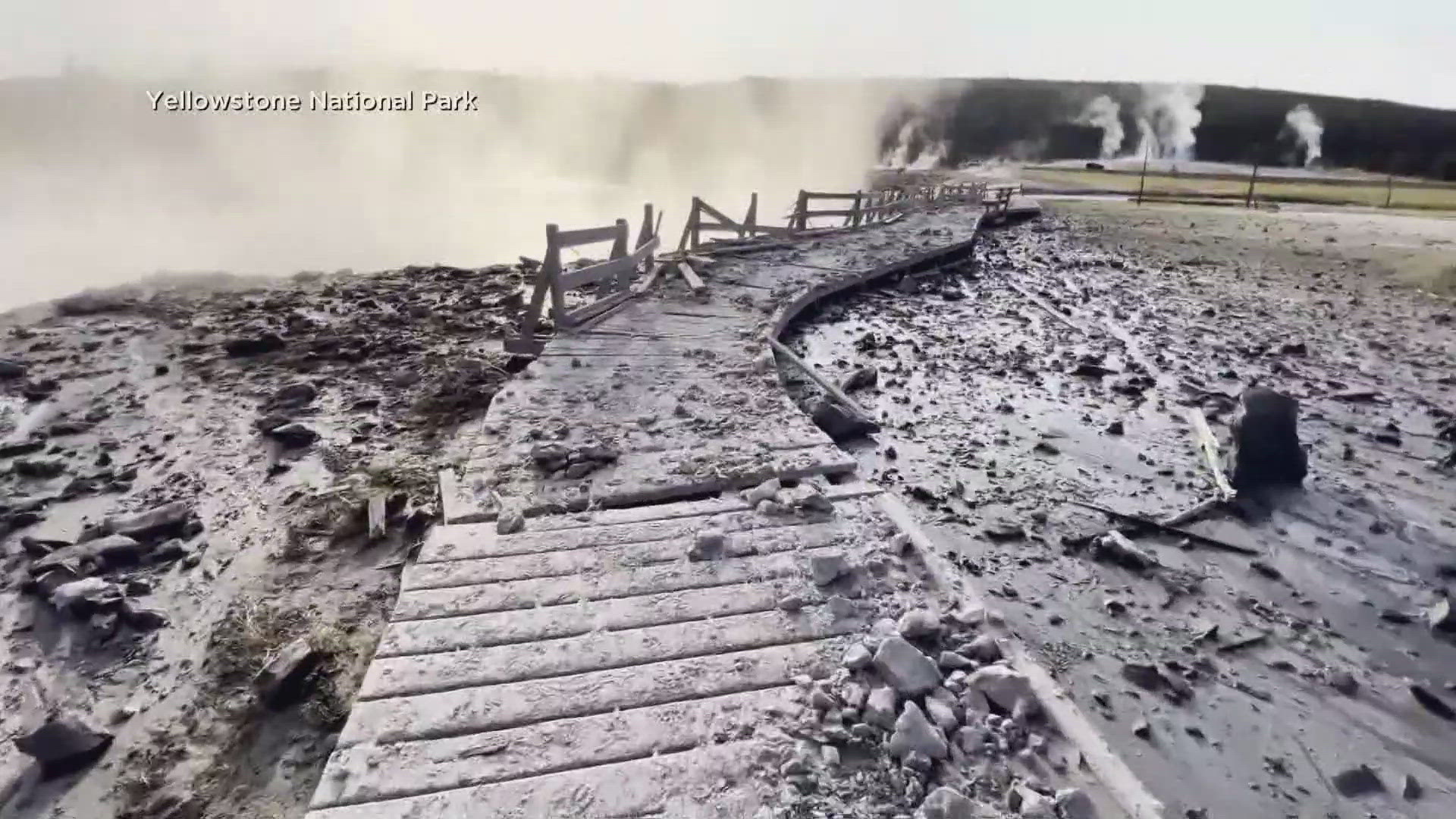MOSIER, Ore. -- An oil train passing through the Columbia River Gorge near Mosier derailed Friday afternoon, igniting a fire and sending out large plumes of smoke.
The train derailed at about 12:20 p.m. Interstate 84 is closed from The Dalles to Hood River. The closure was from Cascade Locks to The Dalles earlier in the afternoon.
ODOT recommends using the Hood River Bridge as a detour and the toll will be waived during the closure. Traffic on Highway 14, across from the Columbia River, is backed up.
Residents were immediately evacuated within a quarter-mile of the crash. KGW's Pat Dooris reports Mosier residents have been warned that a mandatory one-mile evacuation could be put in place at anytime.
The city is also worried about a sewage treatment plant near the fire. A boil water notice has been sent to Mosier residents.
A Red Cross shelter was opened in The Dalles for evacuees. The shelter is located at the Dry Hollow Elementary School at 1314 E. 19th St.
Union Pacific says 11 rail cars from the 96-car crude oil train derailed. The train was on its way to Tacoma, Washington, from Eastport, Idaho.
The cause of the crash is under investigation.
Oil was released from at least one rail car and multiple cars caught on fire. It wasn't immediately clear how much oil was released. Union Pacific sent a hazardous response team to contain the oil.
There was an explosion and the fire intensified at about 5 p.m. A cooling operation began knocking down flames at about 6:30 p.m. Crews were focusing on cars that weren't on fire before going after the engulfed rail cars.
Maia Bellon, director of Washington state's Department of Ecology, says no oil has been spotted in the Columbia River.
The derailment happened on a section of track that had recently been repaired by Union Pacific, according to the Oregon Department of Transportation. An inspection in April found 31 minor issues that did not trigger violations. All issues were fixed, ODOT said.
The train was carrying Bakken crude oil, which is more dangerous to ship than other oils because it can be more flammable. Hydrolic fracturing, or fracking, is often used to harvest oil from the Bakken region in Montana and North Dakota.
Burlington Northern Santa Fe (BNSF) Railway sent a foam truck to fight the fire. Portland Airport Fire & Rescue sent a specialized firefighting foam truck carrying about 1,300 gallons of fire suppression foam.
Gov. Kate Brown invoked the Emergency Conflagration Act to provide additional resources to crews fighting the fire.
"I am committed to making the necessary resources available to help keep the community of Mosier safe," Brown said in a press release.
She also praised first responders for their efforts. About 200 students were evacuated from an elementary and middle school near the scene.
Silas Bleakley was working at his restaurant in Mosier when the train derailed.
“You could feel it through the ground. It was more of a feeling than a noise,” he told The Associated Press as smoke billowed from the tankers.
Bleakley said he went outside, saw the smoke and got in his truck and drove about 2,000 feet to a bridge that crosses the railroad tracks.
There, he said he saw tanker cars “accordioned” across the tracks.
Another witness, Brian Shurton, was driving in Mosier and watching the train as it passed by the town when he heard a tremendous noise.
“All of a sudden, I heard ‘Bang! Bang! Bang!’ like dominoes,” he said.
He, too, drove to the bridge overpass to look down and saw the cars flipped over before a fire started in one of the cars and he called 911, he said.
“The train wasn’t going very fast. It would have been worse if it had been faster,” said Shurton, who runs a windsurfing business in nearby Hood River.
Environmentalists reacted quickly to the accident and called it a reminder of why oil should not be transported by rail.
“Moving oil by rail constantly puts our communities and environment at risk,” said Jared Margolis, an attorney at the Center for Biological Diversity in Eugene, Ore.
Matt Lehner, a spokesman from the Federal Railroad Administration, said a team of investigators from Vancouver headed to the scene.


